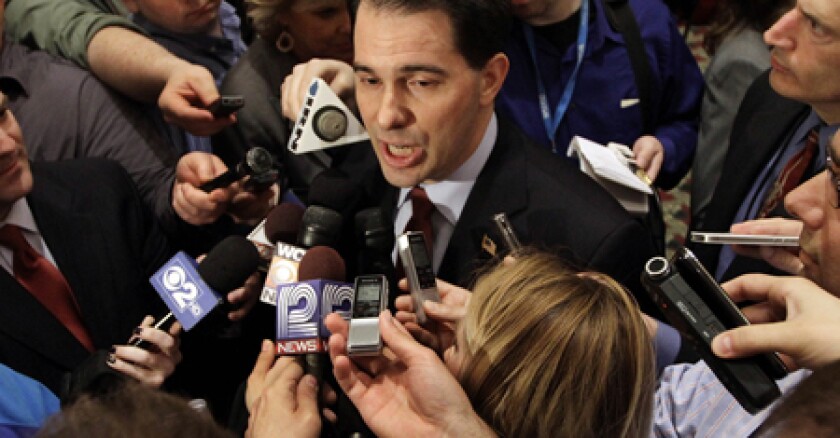At just about the time Wisconsin Gov. Scott Walker survived his recall election, two other high-profile recall attempts were turned back due to lack of sufficient voter interest, those against Michigan Gov. Rick Snyder and Oakland, Calif., Mayor Jean Quan.
Does that mean the recall wave has started to recede? It’s possible, but not likely.
The number of recall elections has risen dramatically over the last decade, thanks in part to the success of the 2003 recall against California Gov. Gray Davis. Most have been brought against local officials -- not just mayors, but school board members and the like -- although legislators have been targeted, too, most notably in Wisconsin.
Most recalls don’t succeed. Even when elections are called, officials manage to keep their jobs about two-thirds of the time, as Walker certainly did. Sixty percent of Wisconsin voters think recalls should be reserved for cases of official misconduct, according to exit polling. “Recalls should only be used for the equivalent of high crimes and misdemeanors, but they’re often used as a way to circumvent the political process,” says David Schecter, a Fresno State political scientist who has studied the history of recalls.
For that reason, recalls aren’t likely to go away, he says. Some groups contemplating a recall attempt may be discouraged by the failure to oust Walker, just as others were enticed by the decision to dump Davis. But in general, the rare, high-profile recall elections at the statewide level merely act as reminders that the tool is available to those angry at some local official. “If conditions are right, people know it’s available,” Schecter says.
That’s too bad, because recalls are typically not being used against officials like former Illinois Gov. Rod Blagojevich who fail to recognize their own unfitness for office and resign on their own. (Illinois legislators passed a recall law almost simultaneously with Blagojevich’s impeachment.) Instead, recalls have become the ultimate expression of displeasure with policy.
They are part of America’s permanent-campaign culture. Any official who does something controversial in a state that allows recalls, like raising taxes or attacking public-sector unions, knows that he or she will be at risk. Voters should be able to express their wrath, but doing it immediately after a policy dispute makes it that much more difficult for officeholders to make decisions they believe will pay off by the end of their regularly scheduled terms.
“It places all decision-making within the context of an ongoing campaign,” says Max Neiman, a political scientist at the University of California, Berkeley. “There seems to be no focus on solving actual problems, but only positioning oneself for reelection.”









